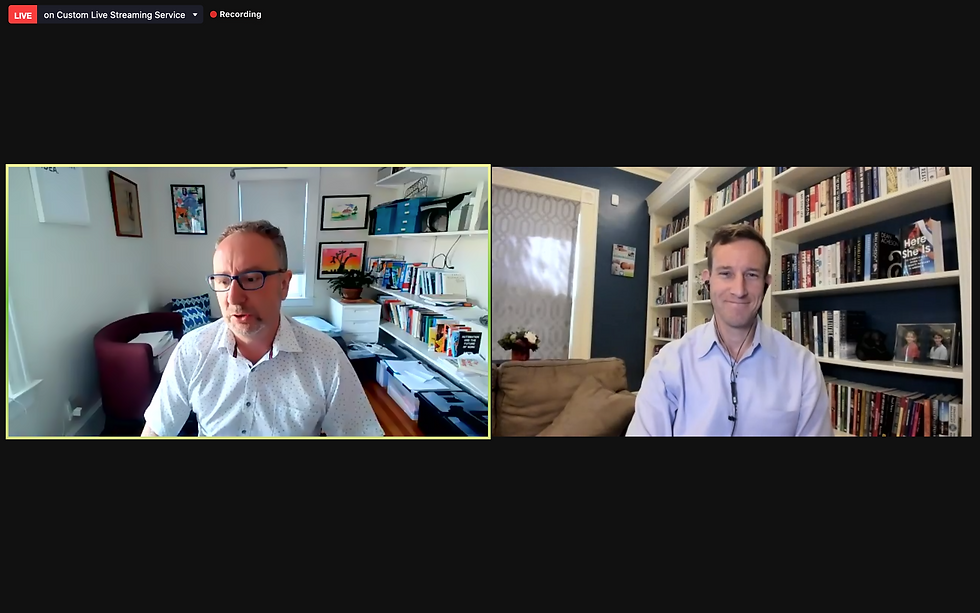Time Is Elastic
- vama.maniar

- Aug 19, 2021
- 5 min read
People assume two things about me when I tell them about the bullet journals I created to help with time management. One is that it implies that I am almost always on time and second that I have a variety of time-saving tips and tricks. How can someone who has books to help them stay on schedule be late, right? I would want to blame my occasional tardiness on juggling academics and sports, but that isn't always the case.
I was watching YouTube videos to see how people advise others on how to carve out an extra hour or two in our day. Their general idea is that if we save fragments of time from our daily tasks (e.g. shortening meetings with clear focus), cumulatively this create enough time for other things! However, I have doubts about the entire premise of this approach.
After analysing how successful people use their time and examining their schedules hour by hour, I believe this concept of saving fragments of time doesn’t serve the purpose. It’s not that saving time doesn’t allows us to have a bit more of it for ourselves but it’s not the path to living the lives we choose; rather, I believe, when we choose the type of life we want to live, time becomes available for us to live that life.
Here's an example of a situation that requires more time than we feel we have: in 10th grade, I took on a demanding subject like art and design while also going to long hours of training for fencing, a sport I am so very passionate about. If you've ever been in a scenario like this, you'll understand how difficult it can be, especially with terrifying board exams looming over your head. Prima facie, being good at art & design subject and fencing would require more time than available.
In 9th grade when I was contemplating pursuing Art and Design, I kept a time log to see how much time I'd need to devote to it and whether it was a practical option given my pursuit of fencing. It was clear that if I wanted to meet deadlines while producing high-quality work, I'd have to commit 10.5 hours of my week to this one subject (which was just one among the other 7 subjects). 10.5 hours! That's the equivalent of finding an extra hour and a half every single day for an entirety of 2 years.
If you had asked me at the start of the year if I could find 10.5 hours in a week for something else, I would have responded with a reverberating NO. Yet, when I needed to find 10.5 extra hours for a subject I was interested in and knew I would be able to do well in, I WAS able to find those 10.5 hours.
This confirmed my belief that time is in fact extremely elastic. Since the beginning of 9th grade, I've been aware of the concept of elasticity, which states that while we cannot create additional time, time will stretch to fit whatever we choose to use it for. So, in my view, one of the ingredients to good time management is to consider our priorities as if they are our necessities.
When someone says, "I don't have time," it usually suggests that whatever is under consideration isn't a priority. I could tell you that I don't have time to participate in another extracurricular activity, but that isn't the case. If you offered me a lucrative incentive for it, I may consider taking it on. How we use our time is a decision we take every second of our lives and we have the power to live our lives doing things that fulfil us. But how do we go about doing that?
We must first determine what is important to us. I offer you another way of thinking about this – Generally, at the end of each year when we get our report cards, we look back at accomplishments in the previous year and possibilities for progress in the next year. This is fine, but I believe, in the alternate it is more productive to do looking forward. You can, in your mind, fast forward to the end of the next year, imagine and write down what results you would like to accomplish, and build a plan to accomplish those results. This strategy is known as the Backward Goal Setting Theory.
The next challenge is figuring out how to split this down into manageable chunks? Here's the deal: we value our priorities in the same way that I valued Art and Design, by placing the tasks associated with our priorities in our schedules. We accomplish this by planning our weeks and days ahead of time. Friday afternoon is a great time to do this, as according to economists, Friday afternoon is a low opportunity cost time. Most of us aren't sitting on the couch on a Friday afternoon thinking, "I'm excited to make progress on my academic and professional priorities right now," but we are willing to consider them while munching snacks and lounging in our beds after a tiresome school week.
So set aside some time to establish a three-category priority list for yourself, which can include education, relationships, and oneself. Making a three-category list reminds us that each of the three categories should contain something important to us. Make a short list of items for each category, and then look over the next week to see where you can fit them in. It's entirely up to you where you put them.
One of the hurdles is that, at the outset, you may think you may not have the time for these activities. So let’s look at reality and break it down. A week is made up of 168 hours. That's a LOT of time! If you study 40 hours per week and sleep 8 hours per night, you will still only be using 96 hours per week, leaving you with 72 hours to do other things. You may say you're studying more, or that you have a side hustle such as an internship consuming additional 10 hours per week. That still leaves you with 62 hours to do other things! You see what I mean?
Within those 168 hours a week, I think we can certainly find time for what matters to us. And that's even if you're working way more than full time hours or studying way more than your average Joe. Looking at the big picture, discovering your passions and designing your life around them, is what time management towards a fulfilling life, is all about.
This is something I sincerely believe; there is time. Time for what counts and time for what matters most.
Vama Maniar





so informative!!!
Very well written! The thought of time is elastic is unique, and timeless thoughts penned down in a beautiful flow.
Love to read all your writing!
Great tips Vama dear, had I followed this way back I would have done arangetram in bharatnatyam
Well written Vama. We could all use an exercise in time management, that's for sure. You are right, we do make time for things we like. So we should somehow be able to make time for things we have to do but don't like as much. It might mean spending less time watching TV or browsing on our phone.
Very well worded! Thought provoking too!